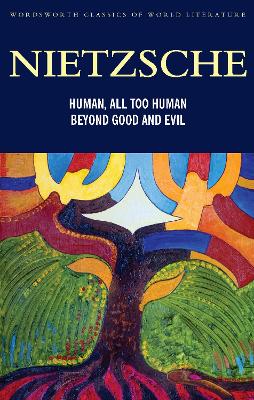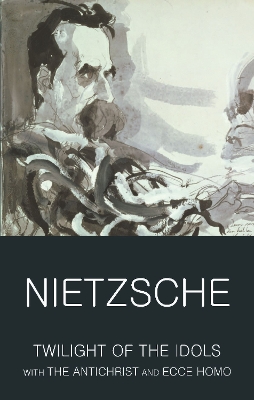Wordsworth Classics of World Literature
2 total works
Nietzsche abandons German romanticism for the French
Enlightenment. At a moment of crisis in his life (no longer a
friend of Richard Wagner, forced to leave academic life
through ill health), he sets out his views in a scintillating and
bewildering series of aphorisms which contain the seeds of his
later philosophy (e.g. the will to power, the need to transcend
conventional Christian morality). The result is one of the
cornerstones of his life's work. It well deserves its subtitle ‘A
Book for Free Spirits’, and its original dedication to Voltaire,
whose project of radical enlightenment here finds a new
champion.
Beyond Good and Evil (1886) is a scathing and powerful critique
of philosophy, religion and science. Here Nietzsche presents us
with problems and challenges that are as troubling as they are
inspiring, while at the same time outlining the virtues, ideas,
and practices which will characterise the philosophy of the
future. Relentless, energetic, tirelessly probing, he both
determines that philosophy's agenda and is himself the
embodiment of the type of thought he wants to foster.
Twilight of the Idols with The Antichrist and Ecce Homo
by Friedrich Nietzsche
Translated by Antony M. Ludovici. With an Introduction by Ray Furness.
The three works in this collection, all dating from Nietzsche's last lucid months, show him at his most stimulating and controversial: the portentous utterances of the prophet (together with the ill-defined figure of the Übermensch) are forsaken, as wit, exuberance and dazzling insights predominate, forcing the reader to face unpalatable insights and to rethink every commonly accepted 'truth'. Thinking with Nietzsche, in Jaspers' words, means holding one's own against him, and we are indeed refreshed and challenged by the vortex of his thoughts, by concepts which test and probe.
In The Twilight of the Idols, The Antichrist, and Ecce Homo Nietzsche writes at breakneck speed of his provenance, his adversaries and his hopes for mankind; the books are largely epigrammatic and aphoristic, allowing this poet-philosopher to bewilder and fascinate us with their strangeness and their daring. He who fights with monsters, Nietzsche once told us, should look to it that he himself does not become one, and when you gaze long into an abyss, the abyss also gazes into you. Reader, beware.

